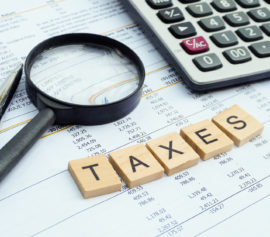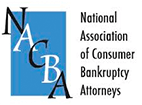Discharging Taxes with Bankruptcy

Carrying debts you can no longer afford can seem overwhelming to anyone. However, when your debts are owed to the government in the form of unpaid or past due taxes, you can quickly find yourself in serious trouble. Unlike other kinds of creditors, the government can easily seize your property, garnish your wages, or levy money out of your bank accounts to satisfy your tax debts.
Depending on your individual situation, filing for bankruptcy may serve as a viable option for discharging or otherwise managing your tax debts. As with all other debts, filing for bankruptcy puts a stop to all tax collection efforts during bankruptcy proceedings. You may be eligible to seek a discharge of your tax debt through bankruptcy, or during the bankruptcy proceedings settle certain amounts of your tax debt and work out payment plans.
If you have questions about your options for settling your outstanding tax debts or wonder whether you may be entitled to discharge your taxes through bankruptcy, contact the law office of Michael H. Schwartz, P.C. today to schedule a initial case evaluation. Talk with an experienced White Plains bankruptcy attorney to learn more about how we can help you resolve your outstanding tax debts.
Contents
- 1 Can I Discharge Tax Debt Through Bankruptcy?
- 2 What Types of Debt Are Discharged Through Bankruptcy?
- 3 What Taxes Are Non-Dischargeable in Bankruptcy?
- 4 Are Dischargeable Taxes Handled Differently Under Chapter 7 and Chapter 13 Bankruptcy?
- 5 What Are the Advantages of Discharging Taxes?
- 6 Contact Us Now for Help Dealing With Your Tax Debt
Can I Discharge Tax Debt Through Bankruptcy?
You may be entitled to discharge your tax debt through Chapter 7 bankruptcy provided you meet the following requirements:
- Your taxes were assessed more than 240 days prior to filing for bankruptcy.
- The taxes you are seeking to discharge did not arise from a substitute tax return.
- The taxes you are seeking to discharge became due more than three years prior to filing for bankruptcy.
- You have not committed tax fraud or tax evasion.
What Types of Debt Are Discharged Through Bankruptcy?
Generally, the only types of debt that can be discharged through bankruptcy include unsecured debts. Unsecured debts can include:
- Credit card debts
- Personal loans
- Medical bills
- Utility bills
- Unpaid rent
Debts such as mortgages, car loans, student loans, child support obligations, alimony and spousal support obligations, judgment debts arising from your willful or malicious injury, and certain kinds of taxes may not be discharged in bankruptcy. Secured debts like mortgages and car loans may be discharged if you agree to surrender your home or car.
The bankruptcy court may disallow discharge of a debt if one of the following acts occurs:
- Property is transferred within six years of filing of the bankruptcy petition with the intent to hinder, delay, or defraud a creditor or the court.
- A reckless disregard for the truth of the statements is made in connection with your bankruptcy.
- A discharge is received in a prior bankruptcy petition filed within the eight years prior to your current petition.
What Taxes Are Non-Dischargeable in Bankruptcy?
Generally speaking, you may not be entitled to seek a discharge of tax debts in bankruptcy if the taxes have recently come due, or if you filed your tax returns late, or if you have committed tax fraud or tax evasion. Otherwise, you may be eligible to seek discharge of taxes in a Chapter 7 bankruptcy.
Are Dischargeable Taxes Handled Differently Under Chapter 7 and Chapter 13 Bankruptcy?
Discharges of debts, including tax debts, are handled differently in Chapter 7 bankruptcies versus Chapter 13 bankruptcies. Generally speaking, in a Chapter 7 bankruptcy, the debtor’s non exempt assets if any are used to pay creditors, and all eligible debts are discharged at the end of the bankruptcy.
In a Chapter 13 bankruptcy, the debtor creates a payment plan for the next three to five years to pay all or a significant portion of their debts. As long as the debtor complies with the plan approved by the court, any outstanding debts remaining at the end of the plan may be discharged by the court.
Therefore, in a Chapter 7 bankruptcy, dischargeable taxes are wiped out without the need for you to pay any portion of those taxes. In a Chapter 13 bankruptcy, you may be expected to develop a payment plan to pay most or all of your outstanding tax debt.
However, in many Chapter 13 cases, your attorney may negotiate with the government to settle a portion of your outstanding tax debt in exchange for paying off the remaining tax debt in a lump sum or as part of a payment plan in your bankruptcy case.
What Are the Advantages of Discharging Taxes?
The primary advantage of discharging taxes is that you are no longer responsible for needing to pay those taxes. Your only other options to settle your outstanding tax liabilities would be to either pay the amounts demanded by the government, or try to negotiate a settlement of a portion of your outstanding tax liability and/or a payment plan that will pay off whatever amounts you owe to the government.
Discharging your tax debt means you can use your income and other financial resources to help resolve other debts you may have, such as credit card debts, outstanding car loans, or outstanding mortgage payments, which can help you get back on the road to financial health more quickly.
Contact Us Now for Help Dealing With Your Tax Debt
If you have questions about discharging taxes in bankruptcy or need help dealing with your outstanding tax debts, schedule a no-obligation initial consultation with a White Plains bankruptcy lawyer from the law office of Michael H. Schwartz, P.C. by calling us or contacting us online now.
Discuss your rights and options for dealing with your tax debt and learn more about how having an experienced bankruptcy attorney on your side can give you the best chance at securing a favorable outcome in resolving your tax debts and other overwhelming liabilities.

Michael H. Schwartz is the largest filer of bankruptcy cases for people living in Westchester and Rockland counties in New York. A graduate of New York Law School, Michael has been licensed to practice in New York State courts since 1983. He is also licensed to practice in the U.S. Bankruptcy and District Courts for the Southern, Eastern and Northern Districts of New York and the District of New Jersey as well as the Second Circuit U.S. Court of Appeals. He is a graduate of Max Gardner’s Bankruptcy and Veterans’ Boot Camps. Several media outlets have reported on his cases or sought his insights, including The New York Times.





